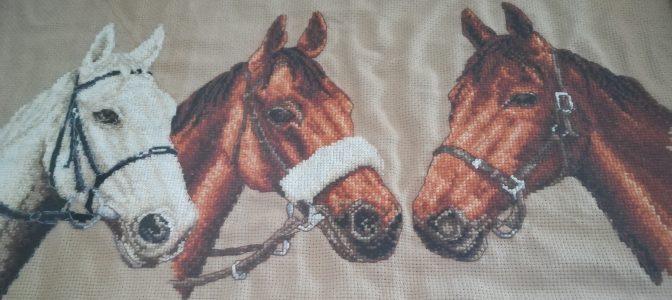This year’s Aintree Festival has, as ever, showcased three incredible days of racing. I introduced my partner to his first-ever Grand National and, although we have watched racing together before, he got the full force of over-excitement, nerves, shouting and tears. All things considered, it’s a miracle that we’re still on course to move in together.
There’s a lot to process from the three days. While the sun has shone and the racegoers have put on their glad rags and popped the fizz open, a shadow has been cast over the festival by four fatalities. Solwara One was lost on the Friday and then on Saturday, the beautiful Elle Est Belle died of a suspected heart attack during the closing stages of the Mersey Novices’ Hurdle. Following the Grand National itself, Discorama and Eclair Surf both died of fatal injuries.
Regrettably, various media outlets announced soon after the National that all horses were back in their stables – leading to the natural conclusions that all came home unharmed. This is absolutely not to blame the media for announcing what they had been told, but unfortunately it has given fuel to the fire of the anti-Grand National campaigners through a suggested ‘rush’ to give the race a positive spin.
So why are we all still watching? It’s a tough but fair question. This year’s race saw a lot of fallers and unseated jockeys, with only 15 of the 40 runners finishing the course, and even the most die-hard fans of National Hunt racing finding it a nervous watch at points. But the dialogue about how to make it a safer race is always open, with decades of improvements ongoing and a determination to make it as achievable a course as possible while retaining the exhilaration that sets the Grand National apart from other races.
Because what should never be in doubt is that the horse is at the heart of everything: not just this race, not just National Hunt racing, but all racing – from first steps as a foal, to long and happy retirements. The loss of a horse is heartbreaking for all connections and the respect and love for the animals is evident for anyone to see. There is an absolute commitment to the welfare of the horse.
It’s interesting to note the discourse around trainer Gordon Elliott this week, following his ban last year, after he was pictured sitting on a dead horse. Speculation has been rife that ITV has avoided interviewing him where possible, even after wins. Some will say he has served his time and should be back in the fold. Others will say his ban was too short. Either way, it shows that the industry and fans have a long memory, especially when it comes to the mistreatment or disrespect of a horse.
And why must we continue to protect this race? For a start, the most vocal of activists are focused on the Grand National but I’ve yet to hear anyone protesting a rainy November Thursday afternoon meet at Bangor-on-Dee. The profile of the National doesn’t make it any more or less ripe for cancellation than any other race, and the furore surrounding it each year is nothing short of hysteria when compared to any other protest about horse racing.
But more importantly, this race is where stories are written and memories are made. This is the race that everyone in the country has heard of. This is the race that brings family and friends together like few other annual sporting events.
When Sam Waley-Cohen passed the post on Noble Yeats, I couldn’t speak for crying for some minutes. It was truly a fairytale. Riding in the Grand National before retirement seemed like the perfect way for the amateur jockey to bow out, but winning it was truly the cherry on the cake. It couldn’t have been a more deserved ending to the career of an absolutely top man.
On a personal level, the tears were an outpouring of the emotion associated with having been party to the full career of a jockey I hugely respect, from a young man riding at Bangor when I was first going racing as a child, to a 39 year-old who has lived out his childhood dream.
Before the race I turned to my partner and pointed out Noble Yeats, saying ‘That’s who Dad would have betted on.’ Racing, and the Grand National, is for me still breaching the ultimate divide. It’s a connection that, even with the retirement of the jockeys Dad and I watched together, will not fade.
Waley-Cohen himself paid tribute to the younger brother he lost to cancer. He called the day a family day on which he would always think of his brother, whose initials he carries on his saddle. And of Noble Yeats he spoke with the utmost love, respect and understanding of exactly what the two of them needed from each other. “When I asked him, he just went…as soon as he picked up, I thought ‘he’s got this’.”
As we’ve learned to expect from Waley-Cohen over his 23 years in the industry, there was no self-congratulation: it was all thanks to the team, his family and most of all, the horse.

7 thoughts on “The heart of the matter”